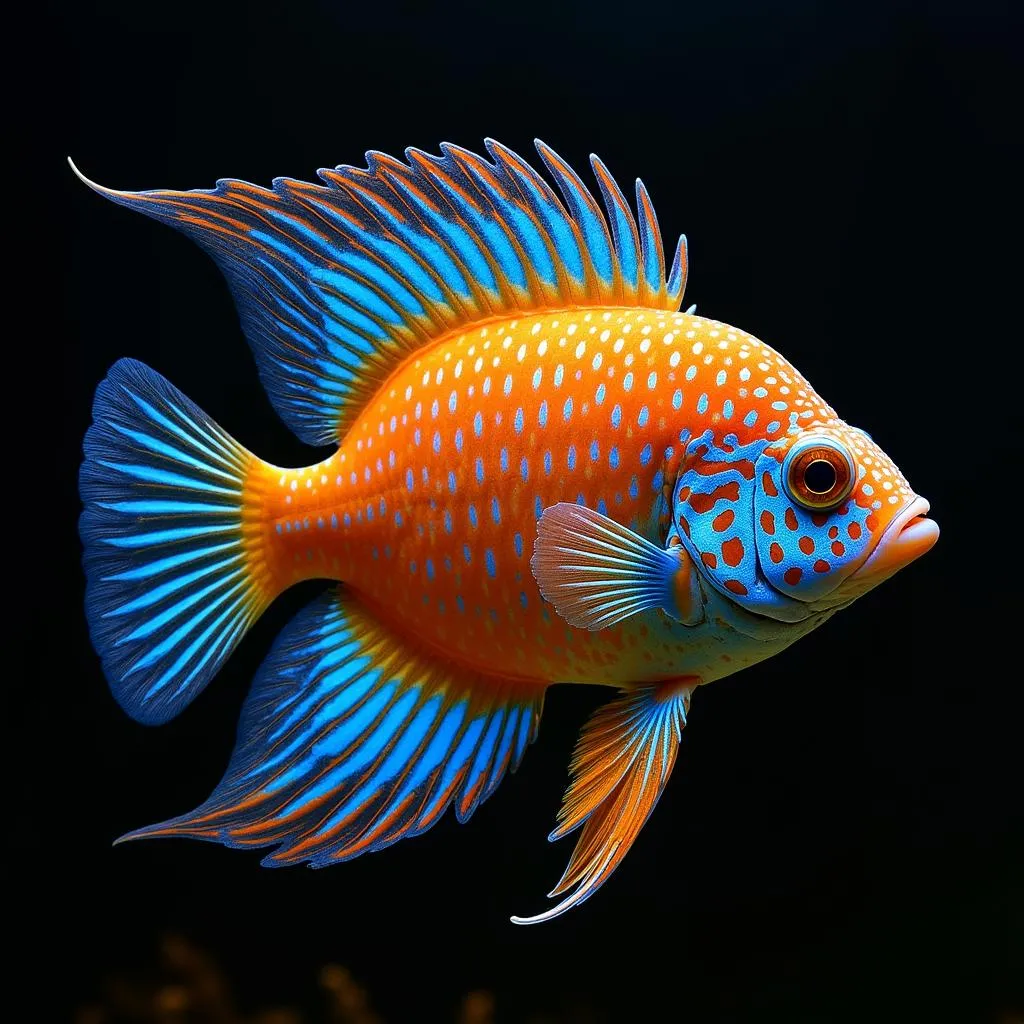Essential African Grey Vitamins: A Comprehensive Guide
African Grey Vitamins are crucial for maintaining the health and vibrancy of these intelligent birds. Providing a balanced diet rich in essential nutrients is paramount for their physical and mental well-being. This guide delves into the specific vitamin requirements of African greys and how to ensure they receive optimal nutrition. After the introduction, you can find more information about African Grey Parrot Food Vitamins.
Understanding African Grey Vitamin Needs
African greys, like all parrots, require a diverse range of vitamins to thrive. These vitamins play essential roles in various bodily functions, from supporting a healthy immune system to promoting feather growth and maintaining strong bones. A deficiency in any of these key vitamins can lead to serious health problems. Therefore, understanding their specific needs is crucial for responsible ownership. For more insights into their nutritional needs, explore information on African bird food in Tamil.
Vitamins are classified into two main groups: fat-soluble and water-soluble. Fat-soluble vitamins (A, D, E, and K) are stored in the body’s fatty tissues, while water-soluble vitamins (B complex and C) are not stored and need to be replenished regularly.
Vitamin A for Healthy Vision and Growth
Vitamin A is essential for maintaining healthy vision, skin, and feather condition in African greys. It also plays a crucial role in growth and development. A deficiency in vitamin A can lead to respiratory infections, poor feather quality, and reproductive issues.
The Importance of Vitamin D3
Vitamin D3 is vital for calcium absorption, which is crucial for strong bones and beak health. African greys, unlike other parrot species, can’t synthesize vitamin D3 effectively through sunlight filtered through glass. Therefore, supplementation or dietary sources rich in vitamin D3 are essential.
Vitamin E: An Antioxidant Powerhouse
Vitamin E acts as an antioxidant, protecting cells from damage caused by free radicals. It also supports the immune system and plays a role in muscle function. A deficiency in vitamin E can lead to muscle weakness, reproductive problems, and a weakened immune system.
Vitamin K for Proper Blood Clotting
Vitamin K is essential for blood clotting and bone health. A deficiency can lead to excessive bleeding and bruising. While vitamin K is found in some leafy greens, supplementation may be necessary to ensure adequate intake.
The B-Complex Vitamins: Essential for Metabolism
The B-complex vitamins play crucial roles in various metabolic processes, including energy production, nerve function, and red blood cell formation. A deficiency in any of the B vitamins can lead to a range of health problems. You can find more information about the weaning process for these birds on African grey weaning age.
Vitamin C: Boosting Immunity
Vitamin C is a powerful antioxidant that supports the immune system and helps the body absorb iron. It also plays a role in collagen production, which is essential for healthy skin and feathers. A deficiency in vitamin C can lead to weakened immunity, susceptibility to infections, and feather problems. Are you concerned about your African grey’s feather condition? Check our article on African grey molting or plucking for helpful tips.
Providing Optimal African Grey Vitamins
Providing a balanced diet is the best way to ensure your African grey receives all the necessary vitamins. A high-quality parrot pellet should form the foundation of their diet, supplemented with fresh fruits, vegetables, and healthy nuts and seeds. For specific dietary recommendations during breeding, refer to our article on African grey parrot breeding food.
Supplementation When Necessary
While a balanced diet should provide most of the necessary vitamins, supplementation may be required in certain situations, such as illness, stress, or breeding. Always consult with an avian veterinarian before giving your African grey any supplements, as over-supplementation can be harmful.
Signs of Vitamin Deficiency
Be aware of potential signs of vitamin deficiency in your African grey, such as feather plucking, lethargy, poor appetite, or changes in droppings. If you notice any of these signs, consult with an avian veterinarian immediately.
Conclusion
Ensuring your African grey receives the right balance of african grey vitamins is essential for their overall health and well-being. By providing a varied and nutritious diet, along with appropriate supplementation when necessary, you can help your feathered companion live a long, healthy, and vibrant life.
FAQ
- What are the most important vitamins for African greys?
- Can I give my African grey human vitamin supplements?
- What are the signs of a vitamin deficiency in African greys?
- How can I ensure my African grey gets enough vitamin D3?
- What foods are good sources of vitamins for African greys?
- Are vitamin supplements always necessary for African greys?
- How can I tell if my African grey is getting too much of a certain vitamin?
Commonly Asked Questions
- What are the signs of vitamin A deficiency in African Greys?
- How can I provide vitamin D3 to my indoor African Grey?
- What are the best food sources for vitamin K for African Greys?
Further Reading
- You might also find our article on African Grey Parrot Food Vitamins helpful.
Need More Help?
For assistance with your African Grey’s dietary needs, contact us: Phone: +255768904061, Email: kaka.mag@gmail.com or visit us at: Mbarali DC Mawindi, Kangaga, Tanzania. We offer 24/7 customer support.


